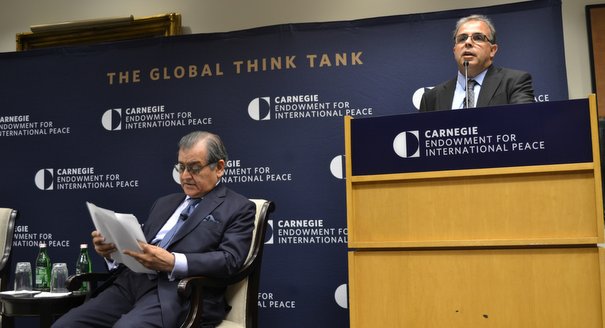Registration
You will receive an email confirming your registration.
Relations between India and Bangladesh have improved considerably in the past few months. The long-awaited Land Boundary Agreement signed by Manmohan Singh in 2010 has finally been ratified. Indian Prime Minister Modi’s recent visit to Dhaka was undoubtedly a success, and was perceived as such across the entire political spectrum, even in the deeply divided Bangladeshi polity. While Modi’s visit has ignited a sense of optimism about Bangladesh-India bilateral relations, tensions persist. The Teesta water sharing agreement is still to be ratified and remains a source of mistrust between the two countries, while some agreements signed during the visit remain contingent upon progress made in the infrastructure sectors of both countries. Former Bangladeshi foreign secretary Farooq Sobhan commented on the future of the relationship. Carnegie’s Frederic Grare moderated.
Farooq Sobhan
Farooq Sobhan is president and CEO of the Bangladesh Enterprise Institute. Sobhan previously served as executive chairman of Bangladesh’s Board of Investment; special envoy to the prime minister (1997–1999); and foreign secretary (1995–1997). He has also served as ambassador and high commissioner to India, China, Malaysia, and the United Nations.
Frederic Grare
Frederic Grare is senior associate and director of Carnegie’s South Asia Program. He works on India’s Look East policy, on Afghanistan and Pakistan’s regional policies, and on the tension between stability and democratization, including civil-military relations, in Pakistan.
